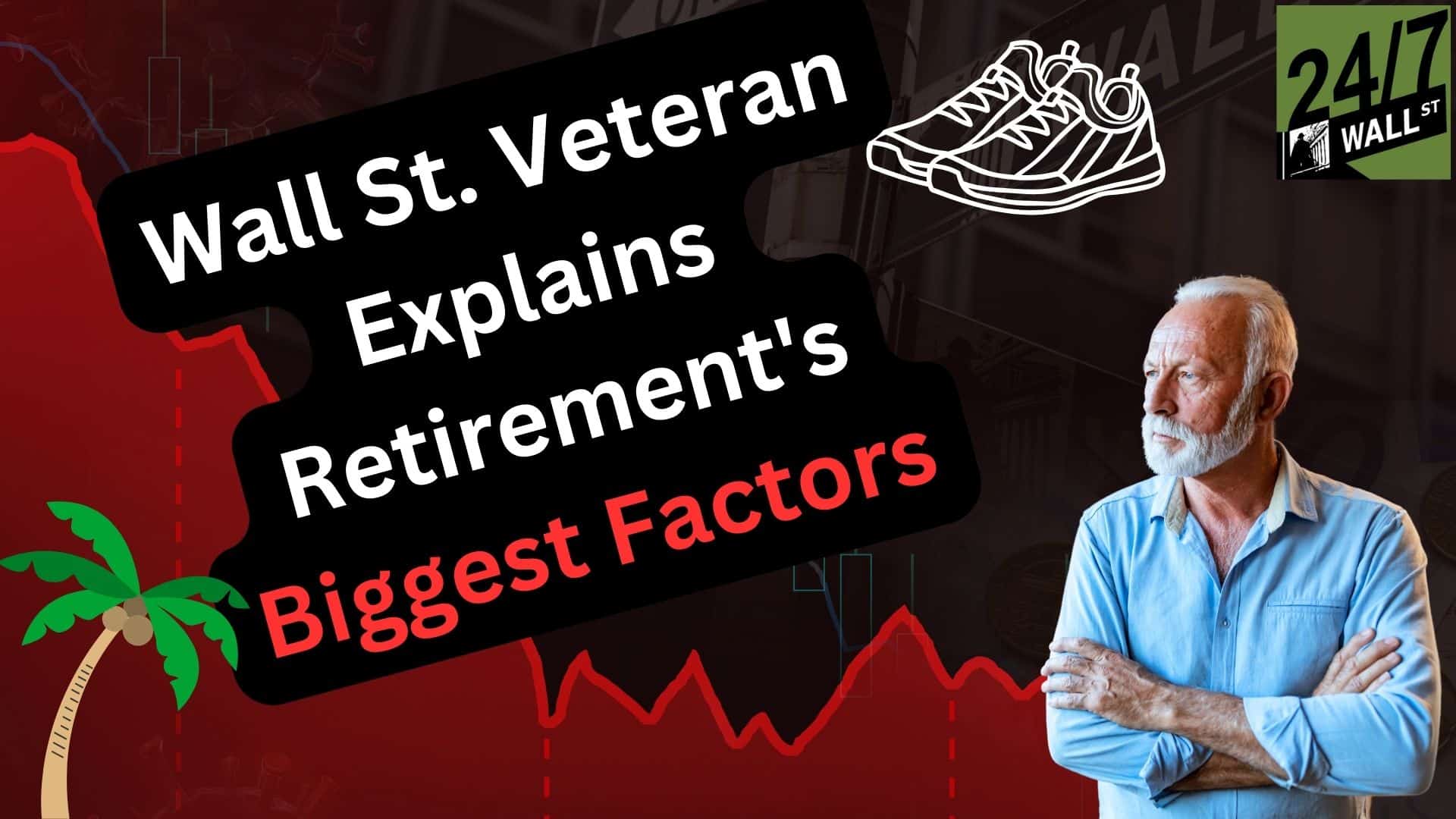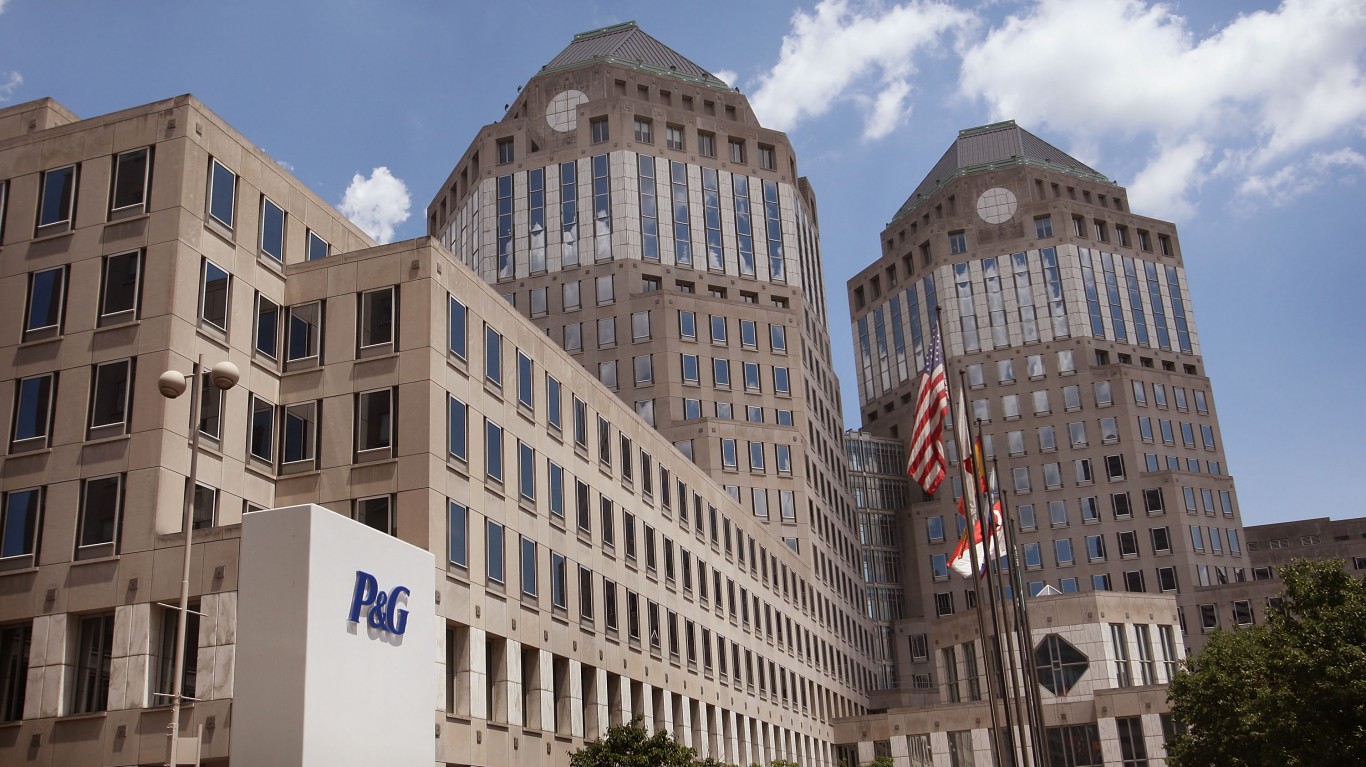
Wall St. Pro Lays It Out For Retirees
Lee Jackson and Doug Mcintyre discussion focuses on retirement planning, specifically the considerations around asset allocation, lifestyle choices, and real estate. It highlights the importance of shifting to conservative investments, planning for potential risks, and making decisions based on personal circumstances and future needs.
Sometimes The Best Choice is Dividend Stocks
The good new is, retirees can take matter into their own hands and invest in quality stocks, bonds, and real estate today. One of the best ways to support a healthy retirement is dividend stocks, which can provide quality income and appreciation for retirees.
Our analysts have named two dividend legends to buy and hold forever. Readers of 24/7 Wall St can access the names of both dividend legends today, completely free. Just click here now.
Transcript:
This over the next 10 years.
Why don’t you tell me a little bit about, so that people can think this through, when you were doing your retirement planning, what are the things you looked at?
What are the specifics you looked at when it came to asset allocation?
Well, I mean, the thing that I think is important for everybody to look at is how do you want to live your retirement?
Do you want to travel?
Have you already traveled a lot?
My wife and I were fortunate. We traveled a lot while I was working. So that’s not as big of an obligation or concern for us.
But you need to plan to make your money be there when you retire. That’s the main thing.
So there’s a point for all investors where you have to start shifting away from high growth, high risk stocks to more conservative dividend paying stocks, which we write a lot about because dividends are important to investors because passive income is important.
So you have to start narrowing down your risk as you get older.
And there used to be this old Wall Street formula where how do I determine what my portfolio should be? It’s like, well, you know, you take 100 and you subtract your age.
So if you’re, you know, 60, you know, you should have 40 percent in the stock market and 60 percent fixed income or something like that.
And I don’t know how accurate that is as a one size fits all formula idea.
But the important thing is to determine what kind of lifestyle you want to have when you retire.
Are you happy with a modest lifestyle?
Do you want to do more?
You have to kind of gauge it to that and gauge your risk to that because people that are in their mid to late 50s and or early 60s, they can’t stand a long-term stock market meltdown. You just can’t because it takes too long to come back.
Should people look at their homes?
Yeah, I think they should. The difficult thing for many people, especially folks that have been in their home and paid their homes off, you know, that’s where the it’s for many people, it’s their biggest investment.
And sometimes it’s smart to sell and buy, size down a little bit or maybe go to an area where their tax situation is better.
Florida, Texas, places with no state income tax.
So, yeah, I mean, if you have equity in your home, that can be your safety net for retirement.
What else did you look at when you made a decision pretty much you didn’t need to travel anywhere?
As much, yeah.
As much.
You looked at things, you looked at Social Security, you looked at the stocks, bonds you held, your real estate. Is there anything else that people should look at from a lifestyle standpoint?
Is there anything else that sort of went through your wife’s mind when you said, well, we’re going to be retiring at age X?
Well, for us, it was important. Like we moved recently because we found out we’re going to be grandparents. So we’re very excited about that.
So we moved. And another thing is that we moved off the Gulf Coast of the United States.
And we’d lived 10 years in Louisiana. We’d lived three years in Houston.
And as we saw with this recent hurricane that came red hot through Jamaica and then hit lower Mexico, came out of there and still went into Texas as a Cat 1 hurricane.
For many people, you don’t want to be in an area where you can have a catastrophic weather event like a big storm that wipes you out because it takes forever.
I can tell you from experience living in Louisiana during Ida, it takes many people. It can take you two years just to get things fixed.
Find a Qualified Financial Advisor (Sponsor)
Finding a qualified financial advisor doesn’t have to be hard. SmartAsset’s free tool matches you with up to 3 fiduciary financial advisors in your area in 5 minutes. Each advisor has been vetted by SmartAsset and is held to a fiduciary standard to act in your best interests. If you’re ready to be matched with local advisors that can help you achieve your financial goals, get started now.
Thank you for reading! Have some feedback for us?
Contact the 24/7 Wall St. editorial team.


